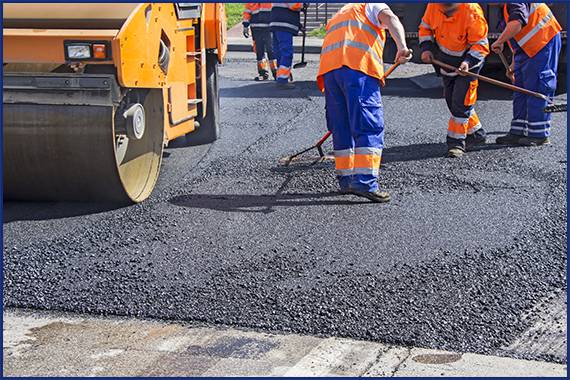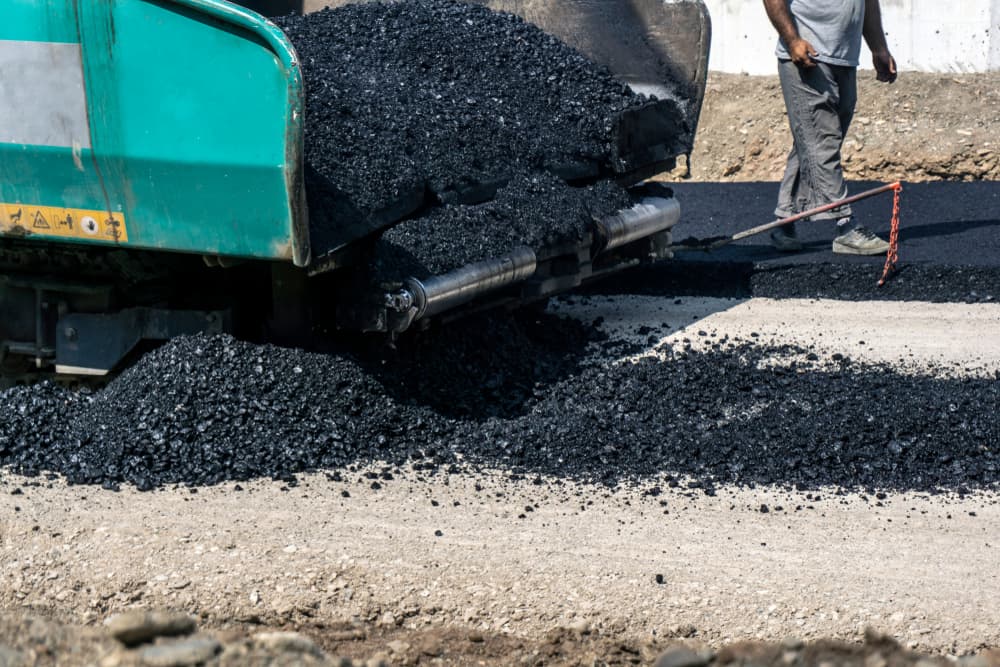Exploring the Various Kinds Of Asphalt Paving and Their Benefits
From the robust features of Hot Mix Asphalt to the environmentally friendly attributes of Recycled Asphalt Sidewalk, comprehending these choices can substantially affect job end results. Technologies such as Warm Mix Asphalt and Porous Asphalt introduce added layers of performance and sustainability.
Hot Mix Asphalt
When taking into consideration the most effective paving services, hot mix asphalt (HMA) stands out as a premier option for many applications (paving). HMA is a flexible leading product understood for its sturdiness, versatility, and total efficiency. It is generated by home heating asphalt binder and combining it with accumulations at heats, ensuring an uniform mix that can stand up to various environmental conditions
One of the primary advantages of HMA is its capacity to supply a smooth, skid-resistant surface, enhancing security for cars and pedestrians alike. Furthermore, HMA exhibits superb resistance to contortion, making it excellent for high-traffic areas such as freeways and car park great deals. Its versatility to different environments further adds to its prevalent usage.
The installation process of HMA is fairly fast, enabling efficient task conclusion with very little interruption to website traffic. It can be recycled, decreasing waste and promoting sustainability within the building and construction market. paving service. On the whole, hot mix asphalt remains a top choice for paving specialists as a result of its durable performance qualities and long-lasting cost-effectiveness, making it a dependable solution for numerous framework requirements
Warm Mix Asphalt
Warm mix asphalt (WMA) uses an innovative alternative to warm mix asphalt, offering comparable advantages while requiring lower manufacturing temperatures. Commonly created at temperatures between 190 ° F and 250 ° F, WMA innovation reduces power consumption and greenhouse gas emissions throughout production, making it a more eco-friendly alternative.
One of the essential advantages of WMA is its prolonged workability period. The reduced temperatures permit for a lot more effective transportation and positioning, especially in cooler climate condition. This flexibility can bring about improved compaction and total durability of the asphalt surface area. Furthermore, WMA can be made use of in various applications, ranging from freeways to residential driveways, without compromising efficiency.

The consolidation of additives or changed binders in WMA contributes to its improved properties, guaranteeing that it meets or goes beyond performance criteria. Furthermore, WMA's minimized thermal impact throughout manufacturing can lower the possibility of damages to the surrounding atmosphere, making it an attractive selection for sustainable paving methods.
Cold Mix Asphalt
Cold mix asphalt is a versatile leading service frequently made use of for short-term repair work and low-traffic locations. This type of asphalt is produced at ambient temperatures, making it a practical choice for fast solutions and tasks where traditional warm mix asphalt may not be possible. The blend generally contains asphalt binder, aggregate, and additives, enabling it to continue to be convenient for a prolonged duration.
Among the main benefits of cool mix asphalt is its ease of application. It can be installed without customized equipment, making it available for smaller specialists and DIY fanatics. Additionally, cold mix can be applied in numerous climate problems, which is especially advantageous for immediate repair work needs.

Cold mix asphalt is likewise cost-effective, as it enables affordable repair services without giving up high quality. Its versatility makes it ideal for patching pits, filling up cracks, and resurfacing driveways. It may not supply the very same lasting toughness as hot mix asphalt, its fast application and adaptability make it an outstanding option for short-lived remedies and low-traffic applications. Overall, cool mix asphalt remains a useful choice in the asphalt paving landscape.
(sign up)
Porous Asphalt
Permeable asphalt is an ingenious paving service made to boost stormwater management and reduce surface area runoff. This type of asphalt features an one-of-a-kind structure that integrates interconnected spaces, allowing water to penetrate through the surface area and into the underlying layers. By helping with all-natural water drainage, porous asphalt helps reduce the danger of flooding and reduces the burden on municipal stormwater systems.
Among the main advantages see here of porous asphalt is its ability to boost water high quality. As stormwater infiltrate the pavement, toxins and debris are trapped, lowering the variety of impurities that get in neighborhood rivers. This adds to much healthier environments and sustains conformity with ecological laws.
Furthermore, porous asphalt can improve the durability of the sidewalk itself. By minimizing water accumulation on the surface, it minimizes the possibility for freeze-thaw cycles that can cause cracking and wear and tear. In addition, the reduced requirement for typical stormwater monitoring framework can cause cost savings for districts and programmers.
Recycled Asphalt Sidewalk
(try here)Recycled asphalt sidewalk (RAP) stands for a lasting approach to street building and upkeep that profits both the setting and the economic climate. By reusing existing asphalt materials, RAP reduces the need for brand-new raw materials, which consequently saves natural deposits and minimizes environmental influence. This practice decreases power consumption and greenhouse gas discharges related to the production of new asphalt.
The consolidation of RAP right into new pavement combinations can likewise lead to significant expense savings. Contractors can utilize recycled products to decrease overall job expenditures, making it an economically viable alternative for districts and personal designers alike. In addition, RAP offers comparable performance features to virgin asphalt, making certain toughness and long life in roadway surfaces.
RAP's versatility permits it to be used in numerous applications, including freeways, vehicle parking whole lots, and domestic driveways. By improving the architectural integrity of existing pavements, RAP adds to improved safety and security and level of smoothness of roadways.
Conclusion
Finally, the diverse kinds of asphalt paving each offer unique benefits customized to certain needs. Hot Mix Asphalt masters resilience and quick setup for high-traffic areas, while Cozy Mix Asphalt enhances sustainability through decreased energy consumption. Cold Mix Asphalt functions as a cost-effective choice for immediate repairs, Porous Asphalt efficiently handles stormwater, and Recycled Asphalt Sidewalk advertises ecological obligation. Jointly, these paving solutions add to effective, green methods in the building and construction market.